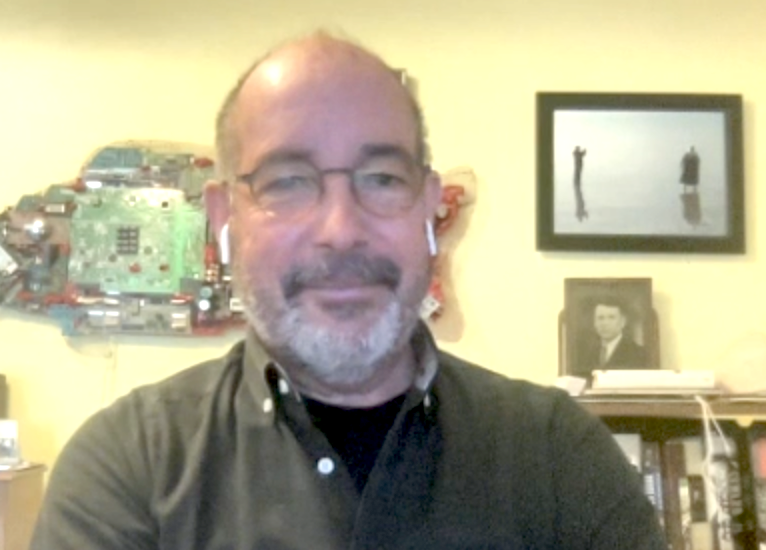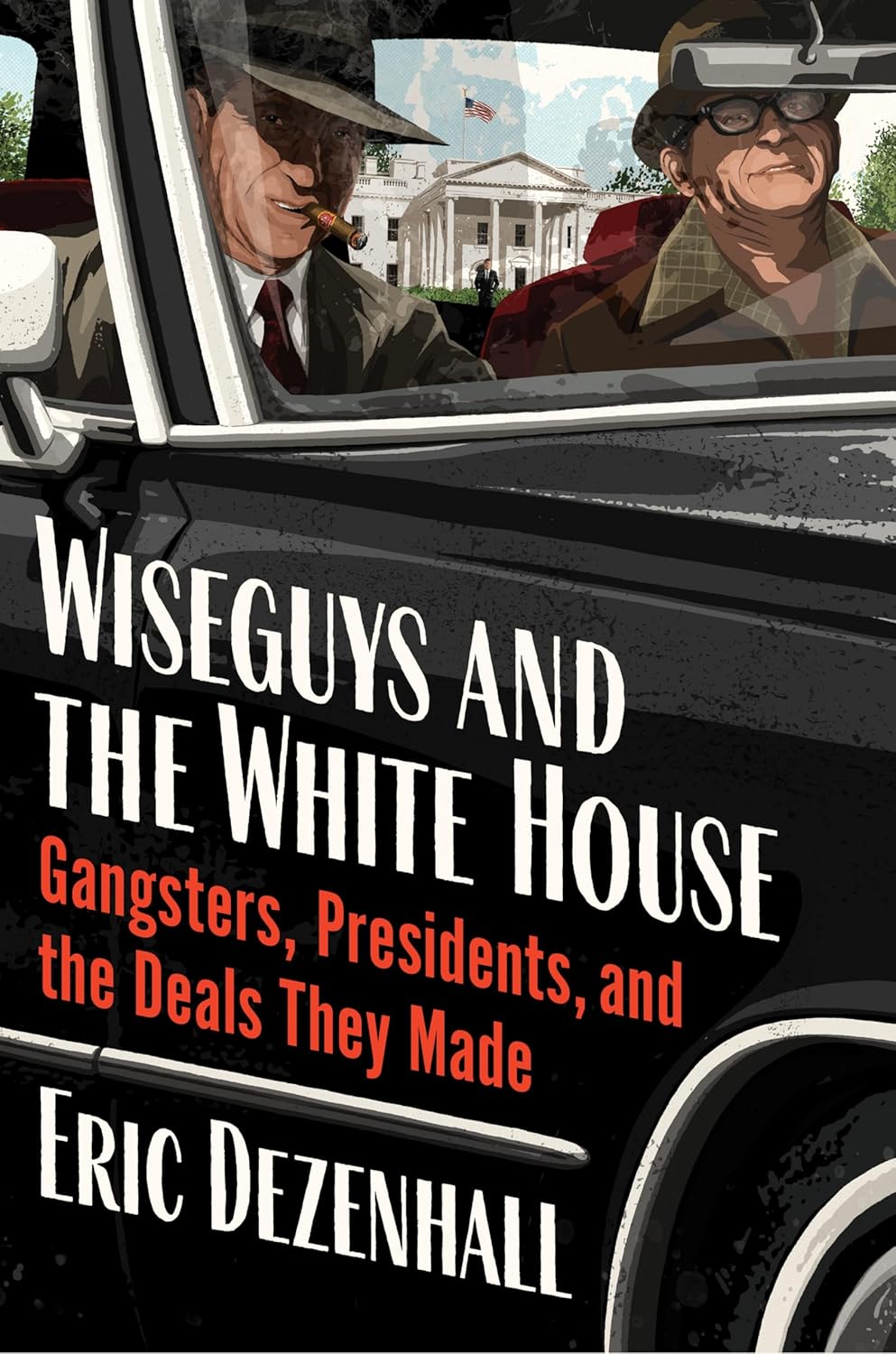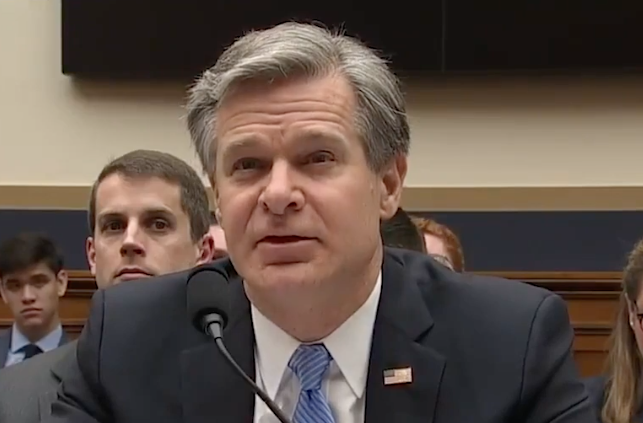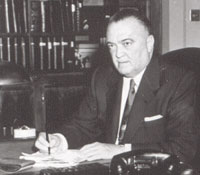
The bulldog-like mug of J. Edgar Hoover has long been synonymous with the FBI, a world-renowned law enforcement agency forever hyper-sensitive about its public image. Still, Hoover’s legend has taken its lumps over the years.
Now comes the latest: an upcoming movie directed by Clint Eastwood and starring Leonardo DiCaprio as Hoover, in which the iconic G-man reportedly has a romantic affair with FBI Associate Director Clyde Tolson, his constant companion and alter ego.
Word of the movie — with the working title “J. Edgar” and slated for release later this year — is already stirring feelings among current and former FBI agents and employees, and raises the question: What does the legacy of J. Edgar Hoover mean to today’s FBI?
“Obviously it upsets me when he’s commonly portrayed wearing a dress or having an alleged relationship with Clyde Tolson,” says Terry Booth, a retired FBI agent who works for the bureau as a contract employee for its Law Enforcement Online program. “There are those who choose to believe it and those who choose not to. I think 99 percent of the agents don’t believe it.”
Some agents don’t care how Hoover is sexually portrayed in the movie. But there are plenty of others who do, who admire Hoover and feel his reputation is being unfairly besmirched as head of an agency that is still considered conservative and male dominated.
Whatever the case, there are those who say the FBI has moved on.

“There are certainly people who are protective of his image,” says former FBI official Mike Mason, who left the bureau in 2007 as executive assistant director at headquarters. “As to his entire legacy, I don’t know how much time agents today think about it. I think the FBI has grown beyond the shadow of Mr. Hoover.”
It is certainly not the first time agents have seen Hoover portrayed in a fashion they find less than flattering. There have been articles and books and YouTube videos portraying him as a sexist and carrying on an affair with Tolson — and yes, even being a cross-dresser. In his later years, he was accused of overstepping his bounds, harassing political dissidents, building files on enemies and becoming far too powerful.
But a movie — which can sometimes have broader impact these days than print in shaping public opinion — has some current and former agents and employees uneasy.
Greg Stejskal, a retired 31-year veteran of the FBI and a columnist for the website ticklethewire.com, says Hoover should get credit for creating a first-rate law enforcement agency that lives on today.
“I think most of my generation and prior to that think Hoover has been done a disservice,” said Stejskal, who concedes that Hoover was far from perfect.
“He’s been vilified in the media, in Hollywood,” Stejskal said. “Unfortunately, he’s not around to defend himself. I think he’s blamed for a lot of things. But people forget things like the wiretaps on Martin Luther King were signed off by Attorney General Robert Kennedy and the Kennedy brothers sat around and listened to some of the tapes, and they didn’t complain then.
“If in fact the reports are based on fact and he’s going to be portrayed as having a sexual relation with Clyde Tolson — or alluding to it — I don’t think that’s fair. There’s no evidence. I suspect Hoover was asexual and married to the bureau. I hate to see the new generation take this as fact.”
Hoover first became director of the Bureau of Investigation in 1924 and 11 years later helped found the FBI, which he headed up until his death on May 2, 1972, at age 77.
Some agents and former agents referred to him as a trail blazer in law enforcement, a man who created a sophisticated machinery that relied on science and a world-class fingerprint collection and electronic listening devices.
“The guy was probably the founding father of modern law enforcement,” Stejskal said. “Did he do some things wrong? Probably. But there were a lot of good things. I think the FBI is what it is because of Hoover. I think we owe him. The American citizens owe him a debt of gratitude for the sacrifices he made. The worst crime is that he stuck around too long.”
Most agents agreed that the tactics Hoover used early on in his career did not play well, particularly in the late 1960s and early 1970s. By the time he left, the FBI had no female employees and relatively few African-Americans.
Former agent Terry Booth says that even though he arrived at the FBI in 1983 after Hoover had long passed, his presence was felt.
“He was a legendary figure we heard about during our entire career,” Booth recalled. “When I was a new agent, I would see an older agent who worked under Hoover and had an autographed picture of him or a letter of commendation signed by Hoover; I was in awe.”
But some agents dismiss concerns about the new movie.
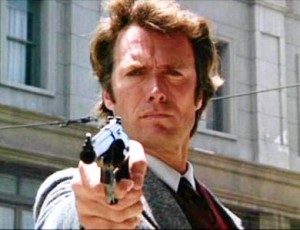
“First off, who cares?” said one veteran FBI agent who asked not to be named. “I thought a little higher of Mr. Eastwood than that. But I don’t think it hurts the FBI. To me it’s just silliness. Why do it? The guy has been dead since 1972.”
Another agent simply said: “I think the bureau takes the good part of what he did. Without him we don’t have an FBI. He was kind of a visionary. That’s the backbone of how we got started. I think certainly some of the people still in the FBI who worked for him (support staff) drank the Kool-Aid and support him to the end. But I don’t care what he did in his free time. I could care less.”
Added another fellow agent said, “If he were gay today, everyone would applaud it.”
“Is he important? Yes, as the founding father. Is he George Washington? No,” said William M. Baker, who worked under Hoover, was former assistant director of the FBI at headquarters and is a director of the J. Edgar Hoover Foundation.
As for the movie, Baker said: “I think it could do damage to his reputation more than the FBI.”
But he dismisses suggestions that Hoover had a romantic tie to Tolson.
“It would be wrong I think if (Clint Eastwood) goes in that direction in any explicit detail. It would be imagination. I worked with agents who protected him and many who were close to him, and no one ever saw anything between the two men that one could use to jump off to depict a sexual relationship. I believe he was truly married to the FBI.”

